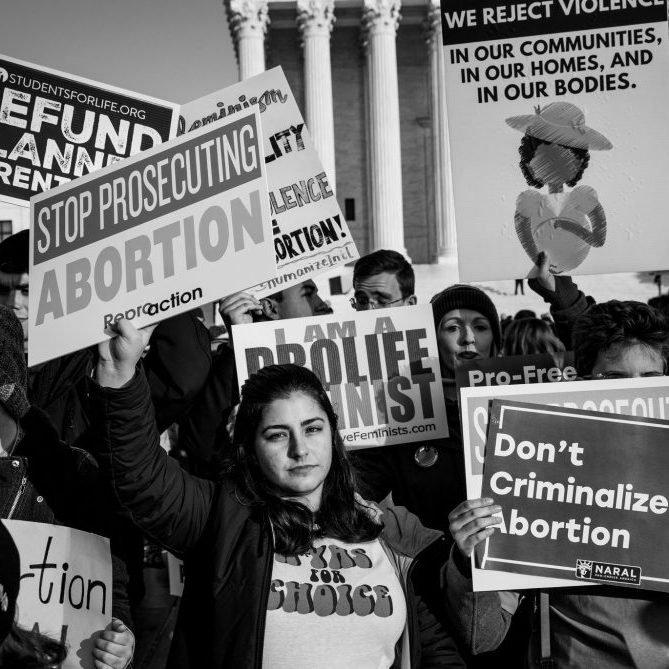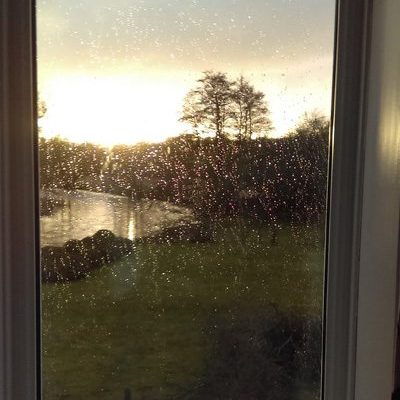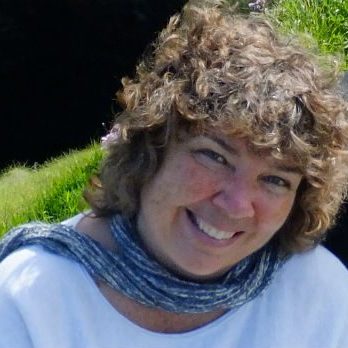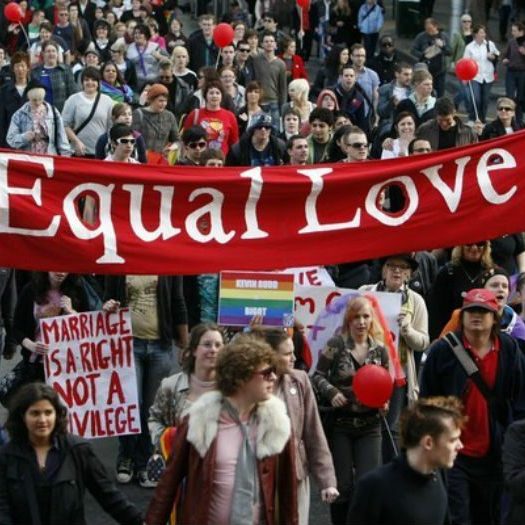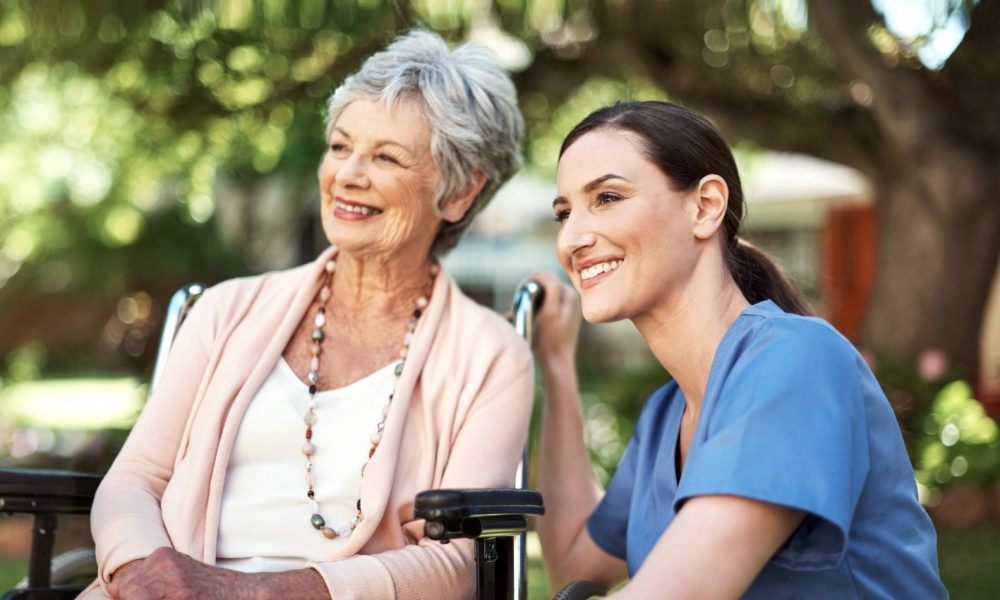 Seven years ago, at age 50, I moved from Melbourne, Australia, to a small island off Florida, where my mother and father lived.
Seven years ago, at age 50, I moved from Melbourne, Australia, to a small island off Florida, where my mother and father lived.
Full of confidence, I said, “I’m going to take care of my parents,” sure that I was doing the right thing, and that doing the right thing would be rewarding and satisfying.
Acting out of love, I was willing to make sacrifices—my home in Australia; my challenging, fascinating work as a parliamentary reporter; my income. But I had no idea how much more I would have to give up. Over the next seven years, I broke up with my partner of 13 years, damaged the good relationships I’d had with my siblings, and gave up all my free time. I spent all the money I’d saved, as well as all the money I earned in those seven years. I suffered from loneliness; insomnia; and debilitating, nerve-wracking panic attacks. In the last years before my mother died, I cried not just every day but many times a day: Often, I not only fell asleep crying but woke up crying. My physical health suffered too: I suffered from plantar fasciitis in both feet and lost the ability to walk without pain. Because I so often cooked for and ate with my parents, I stopped being a vegetarian, and I put on 25 pounds.
What I gained, after all that struggle, was peace of mind, though I paid a high price for it. Because of my efforts, both my parents could stay in their homes until the end of their lives. Each of them died in a hospice, but until that time they were right where they wanted to be, in the house they’d lived in for 20 years because I provided for them. I found, hired, and managed caregivers for several years. By the end of my mother’s life (she died a year after my father), I was running two households, mine and hers, and hiring, firing, scheduling, and managing more than six employees. I rarely had a day off, let alone a vacation. I was on call and was called, 24 hours a day.
In my suffering, struggle, and confusion, and in my feelings of helplessness and loneliness, I was not unusual. Millions of Americans are caregivers, and the majority of those are women. According to the 2015 statistics from the National Alliance for Caregiving and AARP, some 34.2 million Americans had provided care to elderly persons (over 50) without compensation in the previous year, and some 9 per cent of those caregivers were LGBT. So that’s approximately 3 million queers whose lives, relationships, homes, jobs, and plans for the future were disrupted or destroyed by the monumental task of caregiving—a difficult and dangerous undertaking for is no training, no preparation, and usually very little support. No wonder I went mad.
Was it worth it?
Yes, according to Valerie Perry, of Valrico, Fla., who was her mother’s caregiver until early 2018. “It comes as a big surprise for a lot of people my age [63 when she started], who have no clue about how much work is involved, or how to look after an elderly person. I didn’t have a clue, even about who to call first. Even people who have been mothers don’t know. I’d been a mother, so I knew about sacrifice, and being on call at all times, but I didn’t know how to take care of an elderly person. With a child, you can plan on it. You’ve got at least nine months to get your life in order.” But the onset of caregiving is often sudden, sometimes because of an emergency. Still, despite the difficulty, Perry says, “I am eternally grateful for the opportunity and know it has prepared me for my own ageing. Sharing those last years with her was a gift.”
Mo Jensen, a 45-year-old lesbian writer, moved from North Carolina to Washington state during her separation from her partner of 10 years. Her divorce coincided with the alarming discovery that her father had an inoperable brain tumour, and Jensen made the cross-country move to be with him. Though the move came at considerable personal expense and inconvenience, Jensen says, “It’s an honour to take care of my dad. He’s my buddy.” About being a lesbian caregiver, Jensen says, “Often we [gay people] have more bandwidth to help older family members—some of us are single and don’t have children, for instance.” While her father was in a rehab facility, Jensen visited him daily and often took him out for entertainment or on errands. “I took him to vote, even though he voted for someone I abhor, Trump. He had the right to do it, and I was glad to support my father.”
Jensen has enjoyed spending time with her father—who is now doing very well, and once again living at home—but says caregiving has been challenging. “For me, the hardest part has been living with my mom, and feeling at times that she’s treating me like a kid again.” Living once again under her parents’ roof, and by their rules, has put additional pressure on Jensen at an already difficult time, but she feels she’s made the right decision. “I’m grateful for every day I have with him—even if he did vote for Trump!”
Valerie Perry lost her mother early in 2018 but says she is far from recovered. “It takes a lot longer than a few months to get over it. For me, there are elements of PTSD (post-traumatic stress disorder).”
I myself have somehow survived the death of my parents, but with difficulty. Shortly after my mother’s funeral, I lost a life-long lover to cancer; after that loss, I was paralyzed for a long time. It took three months before I could get through an afternoon without having to go back to bed and cry. It was six months before I experienced a single day without a significant breakdown. And it took nine months before I could decide on a plan of action for getting on with my life.
In November 2017, I started an eight-month course at a massage school. It was the most difficult decision I’ve ever made, not to mention a very expensive one, but it has been the right one. I once again have a reason to get out of bed in the morning. I’m blissful that I am not responsible for anyone else’s meals, doctor’s appointments, house-cleaning, or happiness. And about those 25 pounds I lost—no coincidence, I started dating again. I’ve been amazed that I can again enjoy romance and intimacy. It’s delightful to be with someone and not be the caregiver but an equal partner in a give-and-take of care and enjoyment. Once again, I am acting out of love.
Are You A Caregiver? Here’s Some Advice
1. There is no right way to care for an elderly person.
Sure, there are some obvious guidelines (no abuse of the person you’re caring for, no abuse of substances, no self-harm), but no one can tell you the best way to help your mother/father/elderly friend to be happy and safe. Hire caregivers? Ask for help from family? Do it all yourself? Live with your loved one, or live alone? Keep your day job, or give it up? People will try to tell you, but I found that to answer these questions I had to listen to my own heart and conscience.
2. It’s OK to be angry, and to be ready for the death of the person you’re taking care of.
It was years before I could admit, to a trusted counsellor, that I wanted my parents to die. It wasn’t, I explained, that I wanted them to suffer. I just wanted my life back. My counsellor told me that such feelings were extremely common, and nothing to be ashamed of. I also became familiar with another term, “anticipatory grief,” or mourning that begins before death.
3. Find whatever good you can.
Take care of yourself,” the people around me kept saying, with the best intentions, but virtually no one offered to 
help so that I could take care of myself. I could barely ever take even one day off! I became annoyed at everyone who cheerfully dispensed such advice. One night I found solace in a dream in which a voice told me that if I “courted joy,” I might find some, but if I didn’t even try, I would have none. After that, I started to seek out opportunities for happiness: I joined a 12-step program and a church; I went to the beach more often; I adopted a cat. What I did not do: drink, take drugs, or have mindless sex. Your mileage may vary, but most caregivers need something to help them cope and endure.
4. It doesn’t last forever.
The worst part of my struggle was not knowing when—or even if—it would end. After I’d been caring for my parents for five or six years, I began to fear that they were immortal. But they weren’t. At the six-and-a-half-year mark, my mother passed away, leaving me with just the “business” of death to deal with. Nothing in my life will ever be as hard as the last year of her life was, because now I never again have to worry about her. Now, the only caretaking I have to do it for myself—and I’m doing a pretty good job.

